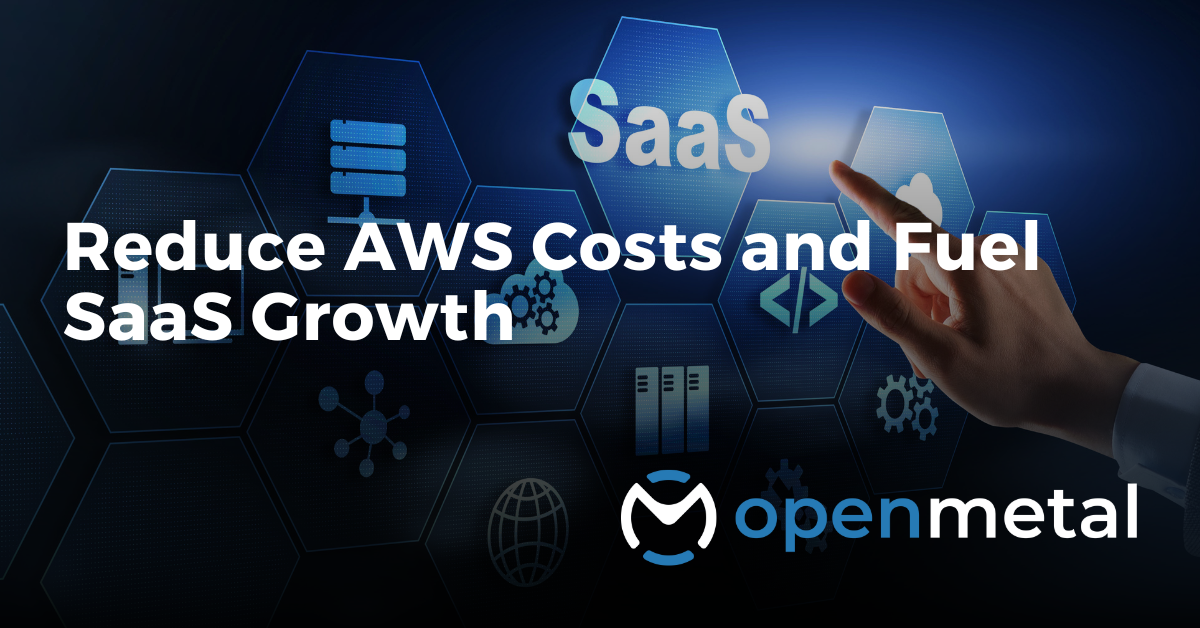Cloud storage is an essential component for businesses looking to manage their data effectively. Cloud storage isn’t just about storing information – it offers scalability, cost efficiency, and enhanced security, enabling businesses to adapt to changing demands.
With cloud storage, organizations can ensure their data is accessible, secure, and backed up, safeguarding against potential losses. It is important to separate your storage from computational infrastructure in order to optimize performance and cost. When storage and computation are decoupled, businesses gain the flexibility to scale resources independently, ensuring that they only pay for what they need. This separation allows for optimizing data management and security, as storage can be tailored to specific requirements without being constrained by the computational workload. By embracing cloud storage and strategically separating it from computational infrastructure, organizations can achieve greater efficiency, resilience, and control over their data environments.
With the abundance of benefits of having independent storage infrastructure, let’s explore the best cloud storage solution for you business. Amongst the two most popular solutions are Amazon S3 and Google Cloud Storage. This blog will walk you through both solutions and an alternative open source cloud storage solution.
AWS S3: Cloud-Native Object Storage
Amazon Simple Storage Service, or AWS S3, is a fully managed object storage service that offers scalability, security, and increased performance. It was launched back in 2006 and has benefitted from almost two decades of refinement. Built for the cloud, AWS S3 is able to handle large amounts of data with high availability and durability. AWS S3 is optimized for storing and retrieving objects, making it ideal for unstructured data like images, videos, and log files. Its RESTful API and integration with other AWS services make it a natural choice for businesses already within the AWS ecosystem. S3 also includes helpful features like versioning, lifecycle management, and access control.
However, S3’s closed-source nature limits user’s ability to optimize their storage infrastructure, and the cost implications for large-scale data storage can be significant downsides. Additionally, with AWS S3, you need additional services from AWS to access data in block or certain file formats.
Google Cloud Storage: Unstructured Data Storage
In 2010 Google launched Google Cloud Storage to compete with AWS Simple Storage Solution. Google Cloud Storage is a managed service used to store unstructured data. Google Cloud Storage is a scalable and secure service for storing unstructured data, such as files, media, and backups. With Google Cloud Storage, users can store large amounts of data and retrieve it with ease. This makes Google Cloud Storage ideal for applications that require high availability and durability. Additionally, there are various storage classes for users to choose from, allowing users to optimize costs based on their data access patterns.
While various storage classes provide users with options, this perk adds to the complexity when navigating Google’s pricing calculator. With GCP pricing can be complex, especially with egress fees for data transfer, which can add up if not carefully managed. Google Cloud Storage is also propriety so root level customization is limited.
Ceph: Flexible Distributed Storage
Ceph is an open source storage platform designed to allow object, block, and file storage from a single system. Ceph is self-healing and self-managed which allows it to deal with outages on its own. Ceph strives to reduce administrator and budget costs, aims for completely distributed operations without a single point of failure, and is scalable to the exabyte level. Ceph software also runs on commodity hardware and replicates data to make it fault-tolerant.
Ceph’s foundation is a distributed storage cluster which is comprised of monitors and object storage devices (OSDs). Monitors oversee cluster health, while OSDs store data. Ceph’s architecture includes additional components like managers for extra monitoring, metadata servers for filesystem metadata, and RESTful gateways (RGWs) for exposing object storage via S3-compatible APIs.
Ceph’s RADOS (Reliable Autonomic Distributed Object Store) powers its block and file storage capabilities. RADOS allows for features like snapshotting, replication, and consistency ensure data durability and high availability. This distributed design ensure high availability, linear scalability, and fault tolerance.
While Ceph is an incredible open source storage solution, the complexity of setting up and configuring it has limited the adoption of Ceph. However, cloud providers now offer Ceph storage clusters as a product. This increases accessibility to this complex open source solution.
AWS S3 vs Google Cloud Storage vs Ceph
Feature | Google Cloud Storage | Ceph | AWS S3 |
|---|---|---|---|
| License Model | Closed source | Open source | Closed source |
| Deployment Model | In the cloud or on-premises | Can be deployed on-premises or in the cloud | Cloud-native, tied to the AWS ecosystem |
Storage Types | Object | Object, block, file | Object |
| Consistency Model | Strong | Strong | Eventual |
| Cost | Flexible pricing model that is based on the amount of data stored and the number of operations performed. | Likely lower TCO due to open source and hardware flexibility, but operational costs should be considered | Pay-per-use, potentially higher usage costs but a predictable pricing model |
| Control | Limited control, can be private but users do not have root level access to the code | Full control over hardware and software | Limited control, managed service |
Which Cloud Storage Solution Is Best For My Workloads?
AWS S3, Google Cloud Storage, and Ceph are all formidable storage solutions, but the best solution for your business will depend on your workloads and needs.
AWS S3
- Provides control over data, with additional features like encryption and cross-region replication.
- Allows for multiple storage classes optimized for different access patterns.
- For organizations that require a wide range of storage options and want to leverage the AWS ecosystem.
- For businesses that require a balance of simplicity and features.
- For businesses that require a wide range of performance options, from high-performance to cost-optimized.
Google Cloud Storage
- Allows for control over data, with features like object lifecycle management and access controls.
- High performance storage solutions for most use cases.
- For businesses with a large volume of data and a preference for Google Cloud ecosystem.
- Provides a managed service with a simple API, making it easy to use.
- For organizations that prioritize simplicity and ease of use.
Ceph Storage Clusters
- Ceph Storage Clusters provides users with the highest level of control over their infrastructure with root level access to the code.
- Ideal for enterprises that require extremely high performance and have the resources to optimize their infrastructure.
- For enterprises with a strong technical team and a need for high customization and control. Smaller teams may prefer a hosted Ceph solution.
- Can be cost-effective for large-scale deployments, especially when using commodity hardware.
Ceph Demo
Want to learn more about using a hosted Ceph storage cluster?
Wrapping Up
AWS S3, Google Cloud Storage, and Ceph are all reliable cloud storage solutions. Ceph provides the highest level of control over your infrastructure and if you opt for hosted vs on-prem, is can also be the most cost effective for large data sets. Organizations that require a simple solution, and are less concerned with the ability to customize their infrastructure, would find Google Cloud Storage or AWS S3 a better option.
Read More on the OpenMetal Blog
Understanding Google Cloud Platform (GCP) Pros and Cons
Google Cloud Platform, like every platform, has its pros and cons. And when considering committing to a cloud provider, it is best practice to thoroughly evaluate various options before committing.
Migrate from GCP to On Premise
Considering a shift away from Google Cloud Platform (GCP)? While GCP is undeniably a major player in the cloud computing scene, the market is brimming with alternative solutions that might offer better value.
Amazon Web Services (AWS) and Google Cloud Platform (GCP)’s ability to provide a wide range of services to meet diverse business needs and low entry point make them enticing solutions for many organizations






































